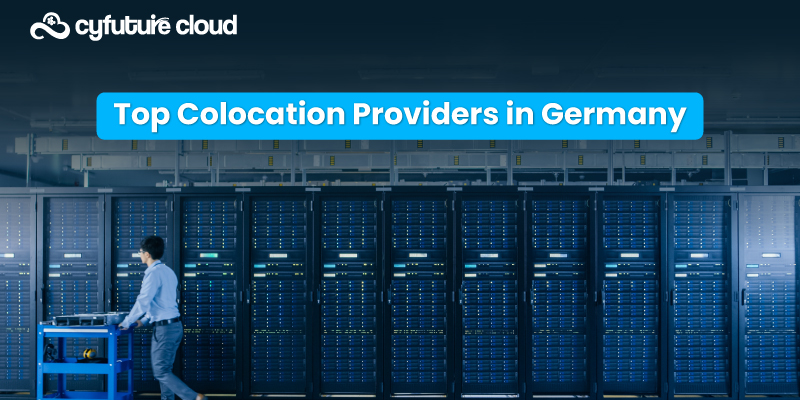Get 69% Off on Cloud Hosting : Claim Your Offer Now!
- Products
-
Compute
Compute
- Predefined TemplatesChoose from a library of predefined templates to deploy virtual machines!
- Custom TemplatesUse Cyfuture Cloud custom templates to create new VMs in a cloud computing environment
- Spot Machines/ Machines on Flex ModelAffordable compute instances suitable for batch jobs and fault-tolerant workloads.
- Shielded ComputingProtect enterprise workloads from threats like remote attacks, privilege escalation, and malicious insiders with Shielded Computing
- GPU CloudGet access to graphics processing units (GPUs) through a Cyfuture cloud infrastructure
- vAppsHost applications and services, or create a test or development environment with Cyfuture Cloud vApps, powered by VMware
- Serverless ComputingNo need to worry about provisioning or managing servers, switch to Serverless Computing with Cyfuture Cloud
- HPCHigh-Performance Computing
- BaremetalBare metal refers to a type of cloud computing service that provides access to dedicated physical servers, rather than virtualized servers.
-
Storage
Storage
- Standard StorageGet access to low-latency access to data and a high level of reliability with Cyfuture Cloud standard storage service
- Nearline StorageStore data at a lower cost without compromising on the level of availability with Nearline
- Coldline StorageStore infrequently used data at low cost with Cyfuture Cloud coldline storage
- Archival StorageStore data in a long-term, durable manner with Cyfuture Cloud archival storage service
-
Database
Database
- MS SQLStore and manage a wide range of applications with Cyfuture Cloud MS SQL
- MariaDBStore and manage data with the cloud with enhanced speed and reliability
- MongoDBNow, store and manage large amounts of data in the cloud with Cyfuture Cloud MongoDB
- Redis CacheStore and retrieve large amounts of data quickly with Cyfuture Cloud Redis Cache
-
Automation
Automation
-
Containers
Containers
- KubernetesNow deploy and manage your applications more efficiently and effectively with the Cyfuture Cloud Kubernetes service
- MicroservicesDesign a cloud application that is multilingual, easily scalable, easy to maintain and deploy, highly available, and minimizes failures using Cyfuture Cloud microservices
-
Operations
Operations
- Real-time Monitoring & Logging ServicesMonitor & track the performance of your applications with real-time monitoring & logging services offered by Cyfuture Cloud
- Infra-maintenance & OptimizationEnsure that your organization is functioning properly with Cyfuture Cloud
- Application Performance ServiceOptimize the performance of your applications over cloud with us
- Database Performance ServiceOptimize the performance of databases over the cloud with us
- Security Managed ServiceProtect your systems and data from security threats with us!
- Back-up As a ServiceStore and manage backups of data in the cloud with Cyfuture Cloud Backup as a Service
- Data Back-up & RestoreStore and manage backups of your data in the cloud with us
- Remote Back-upStore and manage backups in the cloud with remote backup service with Cyfuture Cloud
- Disaster RecoveryStore copies of your data and applications in the cloud and use them to recover in the event of a disaster with the disaster recovery service offered by us
-
Networking
Networking
- Load BalancerEnsure that applications deployed across cloud environments are available, secure, and responsive with an easy, modern approach to load balancing
- Virtual Data CenterNo need to build and maintain a physical data center. It’s time for the virtual data center
- Private LinkPrivate Link is a service offered by Cyfuture Cloud that enables businesses to securely connect their on-premises network to Cyfuture Cloud's network over a private network connection
- Private CircuitGain a high level of security and privacy with private circuits
- VPN GatewaySecurely connect your on-premises network to our network over the internet with VPN Gateway
- CDNGet high availability and performance by distributing the service spatially relative to end users with CDN
-
Media
-
Analytics
Analytics
-
Security
Security
-
Network Firewall
- DNATTranslate destination IP address when connecting from public IP address to a private IP address with DNAT
- SNATWith SNAT, allow traffic from a private network to go to the internet
- WAFProtect your applications from any malicious activity with Cyfuture Cloud WAF service
- DDoSSave your organization from DoSS attacks with Cyfuture Cloud
- IPS/ IDSMonitor and prevent your cloud-based network & infrastructure with IPS/ IDS service by Cyfuture Cloud
- Anti-Virus & Anti-MalwareProtect your cloud-based network & infrastructure with antivirus and antimalware services by Cyfuture Cloud
- Threat EmulationTest the effectiveness of cloud security system with Cyfuture Cloud threat emulation service
- SIEM & SOARMonitor and respond to security threats with SIEM & SOAR services offered by Cyfuture Cloud
- Multi-Factor AuthenticationNow provide an additional layer of security to prevent unauthorized users from accessing your cloud account, even when the password has been stolen!
- SSLSecure data transmission over web browsers with SSL service offered by Cyfuture Cloud
- Threat Detection/ Zero DayThreat detection and zero-day protection are security features that are offered by Cyfuture Cloud as a part of its security offerings
- Vulnerability AssesmentIdentify and analyze vulnerabilities and weaknesses with the Vulnerability Assessment service offered by Cyfuture Cloud
- Penetration TestingIdentify and analyze vulnerabilities and weaknesses with the Penetration Testing service offered by Cyfuture Cloud
- Cloud Key ManagementSecure storage, management, and use of cryptographic keys within a cloud environment with Cloud Key Management
- Cloud Security Posture Management serviceWith Cyfuture Cloud, you get continuous cloud security improvements and adaptations to reduce the chances of successful attacks
- Managed HSMProtect sensitive data and meet regulatory requirements for secure data storage and processing.
- Zero TrustEnsure complete security of network connections and devices over the cloud with Zero Trust Service
- IdentityManage and control access to their network resources and applications for your business with Identity service by Cyfuture Cloud
-
-
Compute
- Solutions
-
Solutions
Solutions
-
 Cloud
Hosting
Cloud
Hosting
-
 VPS
Hosting
VPS
Hosting
-
GPU Cloud
-
 Dedicated
Server
Dedicated
Server
-
 Server
Colocation
Server
Colocation
-
 Backup as a Service
Backup as a Service
-
 CDN
Network
CDN
Network
-
 Window
Cloud Hosting
Window
Cloud Hosting
-
 Linux
Cloud Hosting
Linux
Cloud Hosting
-
Managed Cloud Service
-
Storage as a Service
-
 VMware
Public Cloud
VMware
Public Cloud
-
 Multi-Cloud
Hosting
Multi-Cloud
Hosting
-
 Cloud
Server Hosting
Cloud
Server Hosting
-
 Bare
Metal Server
Bare
Metal Server
-
 Virtual
Machine
Virtual
Machine
-
 Magento
Hosting
Magento
Hosting
-
Remote Backup
-
 DevOps
DevOps
-
 Kubernetes
Kubernetes
-
 Cloud
Storage
Cloud
Storage
-
NVMe Hosting
-
 DR
as s Service
DR
as s Service
-
-
Solutions
- Marketplace
- Pricing
- Resources
- Resources
-
By Product
Use Cases
-
By Industry
- Company
-
Company
Company
-
Company
The Role of Data factory in data democratization and self-service BI
Table of Contents
According to a study by Dresner Advisory Services, 61% of organizations have implemented or are planning to implement a data factory.
According to a study by Accenture, organizations that use a data factory have seen an average increase in their data processing capabilities of 25%.
These facts and figures show that data factory is becoming an increasingly popular and important part of data integration and management strategy. Also, in the next few years, the Data integration and integrity market is expected to grow significantly.
Data factories are being used by many organizations to improve their data processing capabilities and reduce the time required for data integration.
Through this blog, we will define what a data factory is and how it can be used to automate the process of data integration, transformation, and delivery.
We will also be going to explain how a data factory can be used to support data democratization by making it easier for non-technical users to access data and
how it can be used to support self-service BI by improving the speed and efficiency of data delivery.
Streamlining Data Analysis: The Role of Data Factories in Democratizing Data and Self-Service Business Intelligence (Self-Service BI)
In today’s business world, every successful company bases its decision-making process on data.
In order to make use of all the data available to us, we need to understand its core meaning, gather it, and then analyze it. Cyfuture Cloud Data Factory will help you schedule and monitor your data so that you can be sure it is being used effectively.
But, before moving forward, let’s learn about what a data factory is and how it can be used to automate the process of data integration, transformation, and delivery.
What is Data Factory?
A data factory is a framework for automating the process of data integration, transformation, and delivery. It is a way to create, schedule, manage and monitor data pipelines that move and transform data from various sources to destinations, such as data warehouses, data lakes, or cloud storage.
In data factories, the integration of data can be done through various sources, such as files, databases, and cloud services, and then transform and cleanse the data so that it is ready for use.
The functions of all the major components of a data factory are-
- Data integration is used to bring data from various sources into a common format, such as by using Extract, Transform, Load (ETL) processes.
- Data transformation is used to clean, enrich, and standardize the data, such as by using data quality, data profiling, and data mapping tools.
- Data management is used to manage the data pipeline, such as by using data lineage, data governance, and data catalog tools.
- Data monitoring is used to monitor the data pipeline and ensure that it is running as expected, such as by using data lineage, data governance, and data catalog tools.
Now that you understand what a data factory is, it’s time to learn about data democratization and self-service BI. These concepts are integral to understanding the role of data factories in data democratization and self-service BI.
What is Data Democratization?
Data democratization is an organization-wide effort to make data accessible and understandable to everyone, regardless of their level of technical expertise.
Its purpose is to empower all employees to make data-informed decisions and build customer experiences that are powered by data. It requires a shift in the way data is managed and used within an organization.
It starts with breaking down data silos and making sure that data is accurate, timely, and relevant. It also involves creating self-service tools and training employees on how to use data effectively.
In practice, data democratization typically involves implementing technologies and processes that make it easy for people to access and use data, such as self-service business intelligence (BI) tools, data catalogs, and data visualization tools. It also involves creating a culture of data-driven decision-making, where data is seen as a valuable resource that can be used to improve organizational performance.
What is Self-Service Business Intelligence (BI)?
Self-service Business Intelligence (BI) is an approach to allow business users to access, analyze and visualize data without depending on IT or data experts.
Self-service BI tools are typically web-based and can be accessed through a browser, allowing users to access and analyze data from anywhere. The tools are created to be easy to use, even for non-technical users, and typically have features such as drag-and-drop interfaces, pre-built templates, and the ability to make custom reports and visualizations.
The tools available today make it easy to connect to a variety of data sources, including relational databases, data warehouses, and cloud-based platforms. This makes it possible to combine and analyze data from different systems quickly and easily.
How a data factory can be used to support data democratization and self-service BI?
Data democratization and self-service BI are important concepts in the world of data analytics. They refer to the idea of giving all members of an organization access to data and the tools to analyze it, regardless of their technical expertise or job function.
One key aspect of this is the use of a data factory, which is a framework for automating the process of data integration, transformation, and delivery.
|
Data Factory |
Support for Data Democratization and Self-Service BI |
|
Extract, Transform, and Load (ETL) |
Enables the movement and transformation of data from various sources, making it accessible and usable for different teams and individuals. |
|
Data Warehousing |
Allows for the storage and organization of data in a centralized location, making it easy to find and access for reporting and analysis. |
|
Data Governance |
Implements rules and controls to ensure data quality, security, and compliance, allowing for trust and confidence in the data being used for decision-making. |
|
Automation |
Automates repetitive tasks, such as data refreshes, making it possible for non-technical users to access the data and perform their own analysis without needing to rely on IT. |
|
Self-Service BI Tools |
Provide users with the ability to create their own reports and visualizations without needing to rely on IT or data experts, promoting data democratization and empowerment. |
|
Data Cataloging |
Allows for the discovery and documentation of data assets, making it easy for users to understand the data available and how it can be used. |
|
Data Quality and Cleansing |
Ensures that data is accurate, complete, and consistent, making it more reliable for reporting and analysis. |
|
Data Virtualization |
Allows for the creation of virtual data layers, making it possible to access and combine data from multiple sources without the need for physical copies or replication. |
|
Data Governance |
Provides a framework for data management and oversight, ensuring that data is used appropriately and in compliance with regulations. |
|
Data Security |
Implements security measures to protect data from unauthorized access or breaches, allowing for safe and secure data usage. |
By using a data factory for data democratization and self-service BI, organizations can empower their users to access, analyze, and make decisions with the data they need, without relying on IT or data experts.
Data factory can also help to ensure the data is accurate, secure, and compliant, promoting trust and confidence in the data and the decisions being made with it.
Wrapping Up!
Thus, permit non-technical users to access data, ensuring data is accurate and consistent, and enhancing the speed and efficiency of data delivery, a data factory plays a substantial role in data democratization and self-service.
In today’s competitive landscape, data-driven decision-making is a critical business competency. By leveraging a data factory, organizations can give their users the power to make informed decisions and drive their business forward.
So, if you are among those who want data factory support to process and analyze data at scale, enabling them to make better decisions and stay ahead of the competition, then reach out to us.
Transform your data with Cyfuture Cloud Data Factory as we provide the best solution for ensuring that your data is transferred, organized, and processed effectively.
Recent Post

Stay Ahead of the Curve.
Join the Cloud Movement, today!
© Cyfuture, All rights reserved.
Send this to a friend

 Pricing
Calculator
Pricing
Calculator
 Power
Power
 Utilities
Utilities VMware
Private Cloud
VMware
Private Cloud VMware
on AWS
VMware
on AWS VMware
on Azure
VMware
on Azure Service
Level Agreement
Service
Level Agreement 


















